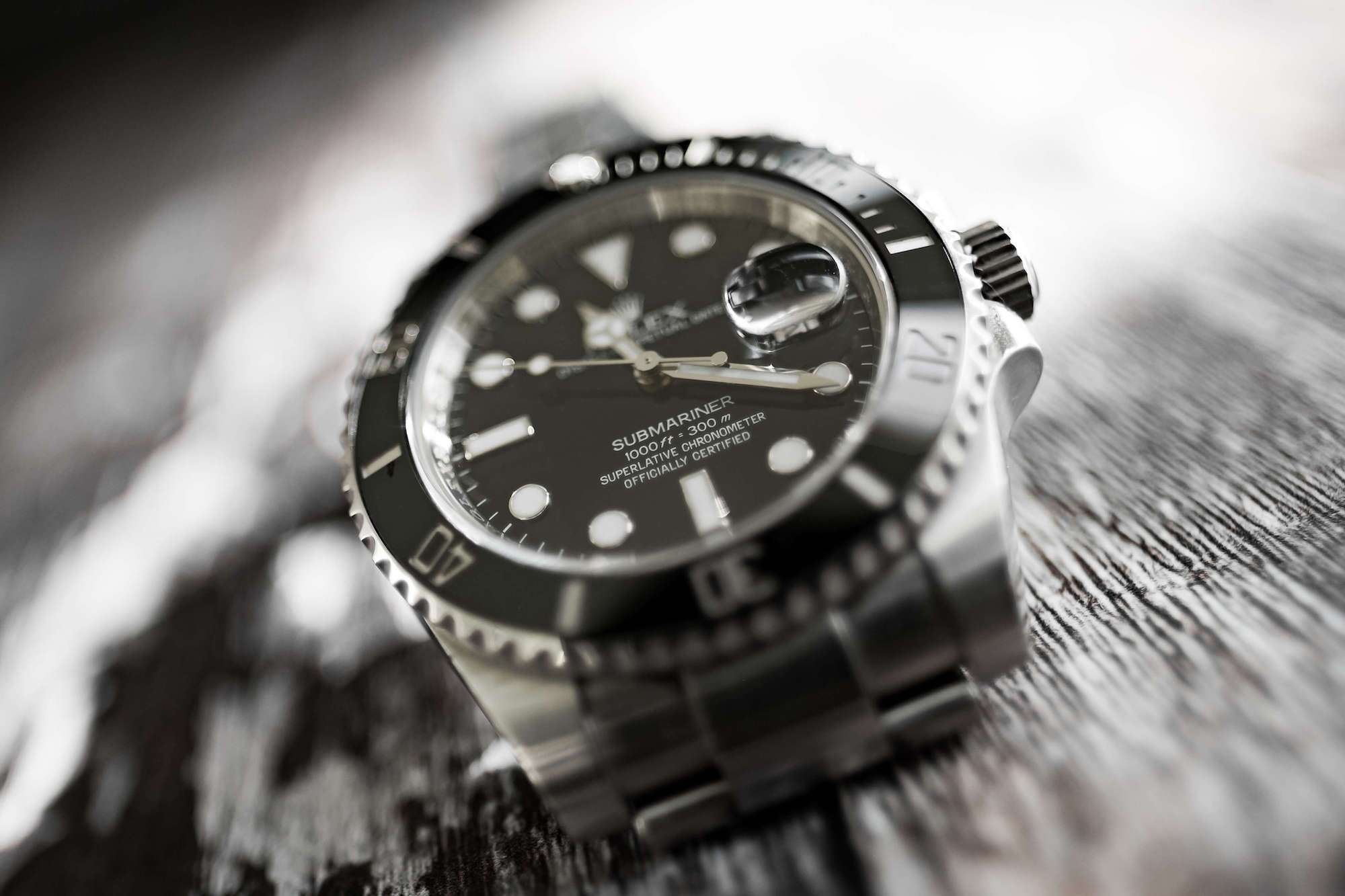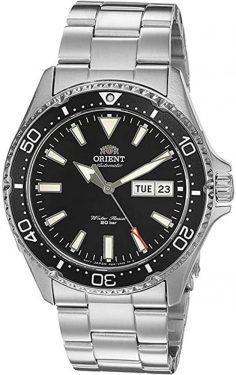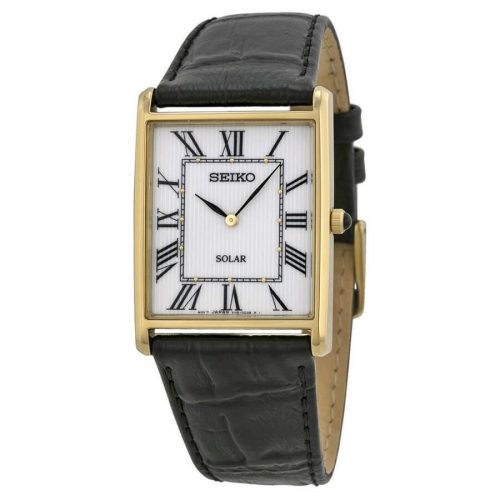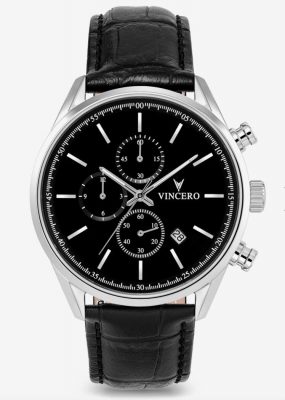Watches
The 5 Most Iconic Watches Ever
The wristwatch has always held its place as the accessory of choice for many men. Whether you’re at a black-tie event, wilderness camping, or underwater diving, there is a watch for the occasion, and often more than one. The recognizable brand and price tag do not define the most iconic watches; rather, the most iconic watches set the standard for the entire watch industry.
The most recognizable and influential watch designers often make multiple collections that look, feel and perform differently. The most iconic watches are the watches these designers hold as their defining piece and are the few that shape the watch industry. Inspired design, mass recognition, and an influence that pushed the timepiece industry forward are what it takes to be iconic.
Table of Contents
The Gold Standard: 5 Coveted Classics
These watches do not only define their brand; they define what a watch is. Some brands create innovative new watches, while others build upon their classic collections. A watch has to be more than a brand or style to list as one of the five most iconic watches ever made. It has to be a watch that transcends the watch industry and has a place in history.
Rolex Submariner: The Icon of Icons
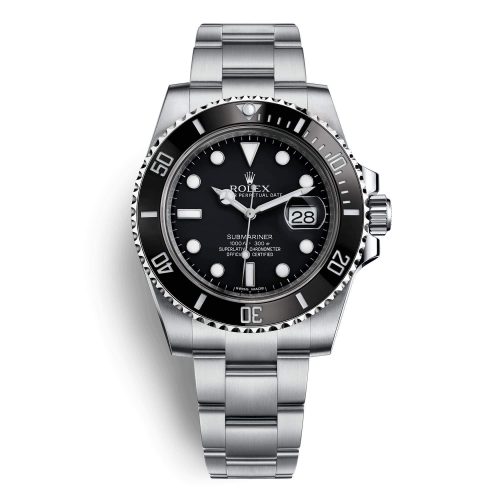
The Rolex Submariner is one of the most iconic watches in history, if not the most iconic. Rolex created the first Submariner in 1953 as a diving watch that was rated to reach a depth of 100 meters (330 feet). Rolex unveiled the Submariner for underwater divers and afterward, watch enthusiasts quickly embraced the watch due to its durability and clean design. The Submariner became an even more popular luxury watch when it was showcased as the timepiece of choice for the international man of mystery, James Bond. Sean Connery wore the Rolex Submariner Ref. 6538 when he played the daring spy in Dr. No (1962), From Russia with Love (1963), Goldfinger (1964), and Thunderball (1965).
The Rolex Submariner is an iconic watch for every watch enthusiast, defined by its distinctive second hand, the famous Mercedes hour hand, and its understated design. Today the iconic diving watch is certified to a depth of 300 meters (1000 feet) and is made from Oystersteel and gold. Some of the modern models also come with a date tracker at the three-hour mark.
Omega Speedmaster: To the Moon and Back
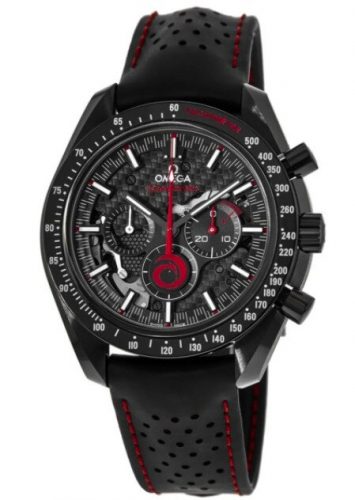
The Olympics’ official timepiece and an accessory for Buzz Aldrin’s 60s defining moonwalk, the Omega Speedmaster Dark Side of the Moon is the iconic sports chronograph. (A chronograph is a timepiece that also includes a stopwatch.) The Omega Speedmaster is the leader in chronograph watch design. They aim to be precise enough for the world stage at the Olympics and have proved to have the durability to launch through space and descend to the moon. The precision and durability define this sports watch as a titan of the industry.
Omega launched the Speedmaster as a part of the Omega Seamaster line as a racing chronograph. Still, the Speedmaster soon created its distinct line of watches separate from the Omega Seamaster and Railmaster collections. The stainless steel tachymeter, a scale inscribed around the watch face as a novel way to measure distance based on speed, inspired the Speedmaster name.
After Buzz Aldrin’s spacewalk in 1969, the Apollo 13 was crippled in 1970 due to an oxygen tank’s rupture. Astronaut John Swigert’s Omega Speedmaster was then used to time the Apollo 13’s critical burn of the descent propulsion system, which allowed the crew’s safe return.
Aldrin’s Speedmaster later disappeared during shipping to the Smithsonian Institution and is still missing to this day.
Cartier Tank: Bold, Beautiful, and Ready for War
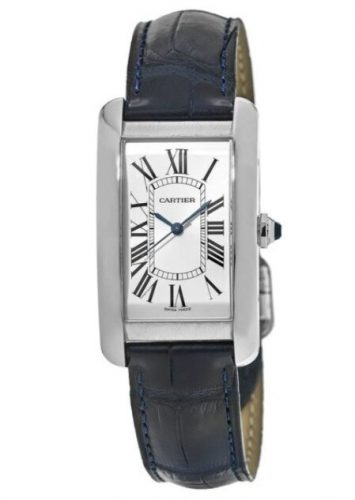
In 1917 the world was engulfed in the first World War. Louis Cartier, a French watchmaker, was inspired by the French Renault light tank used on the Western Front. He modeled his Cartier Tank wristwatch after the tank with lines and dimensions similar to the weapon of war. Cartier presented the prototype to General John Pershing of the American Expeditionary Force. An elegant and timeless watch was brought forth by the rugged and harsh design of a light tank.
Introduced in 1918 and entering full production in 1919, the Cartier Tank stood the test of time and has immerged as one of the most iconic watches in history. It still draws the eyes of watch collectors everywhere and has been worn by Jackie Kennedy and Princess Diana.
The Cartier Tank is the archetype for square and rectangle watches. The watch design includes bold Roman numerals, a sapphire crown, and blued steel hands. Its design harkens back to the first wristwatches worn by military generals as a more convenient way to track time rather than using the classic pocket watch.
Over a hundred years later, the Cartier Tank remains a luxury watch every collector needs.
Tag Heuer Monaco: The Ultimate Cool
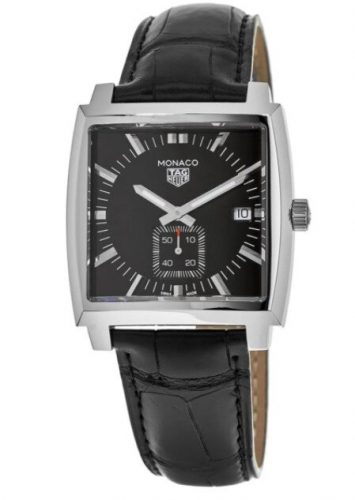
Steve McQueen was known as the “King of Cool,” so it is no wonder why the Tag Heuer Monaco is best known for adorning McQueen’s wrist in the 1971 film Le Mans. McQueen reached out to his friend Jo Siffert, a race car driver and spokesperson for Tag Heuer, to help increase his accuracy in his role as professional race car driver Michael Delaney. Siffert gave McQueen his racing suit that was embroidered with a Tag Heuer advertisement, prompting McQueen to wear the Tag Heuer Monaco in character (as race car drivers always wore a watch). Now the Monaco 1133 is known as the “McQueen Monaco,” making it desired by watch collectors internationally.
The watch is represented by its unique look and sporty design, which was inspired by the high-class Formula One race from which its name is derived. The Monaco has an original and unique design that flaunts its square face and sharp hour and seconds hands. Its primarily leather strap and bold colors make the Monaco stand apart from other sports watches.
Initially launched in 1969 and discontinued in the mid-70s, the Tag Heuer has since re-launched the Monaco in 1998 to respond to Steve McQueen’s popularity increase.
Patek Philippe Nautilus: Worth the Wait
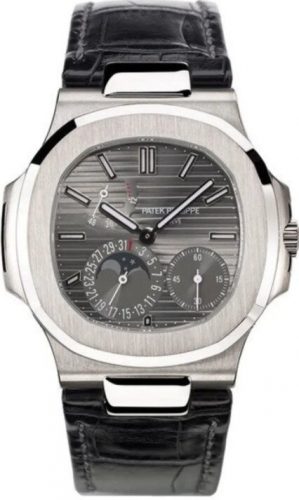
Patek Philippe Nautilus is a luxury watch with an impressive price tag and a long waitlist for those looking to add it to their collection. Gérald Genta designed the Nautilus in 1976 after Ocean liners portholes inspired him. This watch was created over 100 years after, arguably, the first wristwatch was made by watch manufacturer Patek Philippe in 1868.
After four years of production, the Nautilus was a design that combined luxury and stainless steel. The steel used was the same metal used by tanks; this gave the watch excellent durability while remaining light.
In 2006 Patek Philippe ceased all production of older models to introduce a new lineup. Two of these new Nautilus watches included complications (display mechanisms) for the first time in the Nautilus collection. While the hour, minute, and second hands are considered complications, they are often not counted when defining a watch as having them.
The Nautilus Moon Phase has two subdials; one is a date and moon phase dial, while the other is a seconds hand subdial. The Nautilus Chronograph has a chronograph subdial that precisely measures minutes and hours. Whether considering an older model or new, the Patek Philippe Nautilus is a collection that remains a staple in the watch industry.
The Silver Standard: 3 Affordable Alternatives
Realistically, we can’t all afford a Rolex or Omega. Fear not! If you’re not ready to drop tens of thousands of dollars on a new watch, that doesn’t mean that you can’t add an enviable wristwatch to your ensemble. In fact, there’s a huge selection of high-quality fine watches under $1000, under $500 and even under $200 — great news if you’re looking to build a collection!
If you love the 5 iconic models included above, but the price tag is keeping them (at least for now) out of reach, check out the following affordable alternatives.
Comparison Chart
Movement
Special Features
Price
Water Resistance
Buy Now
Rolex Submariner
Mechanical
60-minute rotatable bezel, Oystersteel bracelet
From $8,100
300m
Omega Speedmaster
Automatic
Black ceramic, yachting timing function
From $10,800
50m
Cartier Tank
Automatic
Elongated curved case, navy alligator skin strap
From $5,400
30m
Tag Heuer Monaco
Automatic
Square watch face, silver sub-dials for chronograph minutes & hours
From $1,825
100m
Patek Philippe Nautilus
Mechanical
Rounded octagonal bezel, white gold case
From $43,000
60m
Orient Kamasu
Automatic
Rotatable bezel, Oyster-style bracelet
$460
200m
Seiko SUP880
Automatic
Solar-powered, leather strap, cabochon crown
$195
30m
Vincero Chrono S
Automatic
Sapphire-coated crystal, leather strap, chronograph dials
$165
50m
The Takeaway
The most iconic watches out there are the gold standard for design and innovation. That said, they come with a gold-standard price tag. While for most people obtaining one of the most iconic watch brands is something to save up for over time, there are plenty of excellent timepieces that you can add to your collection in the meantime.
So whether you’re saving up to buy a brand-new Omega Speedmaster, or on the hunt for a second-hand Cartier Tank, your wrist doesn’t need to remain naked in the meantime.
FAQs
1. What is the most expensive watch in the world?
The most expensive watch in the world, the Gaff Diamonds Hallucinator, sits at an impressive $55 million price tag. It may be hard to find the watch dial on this rainbow of fancy multicolored diamonds, far rarer than ordinary diamonds, which total 110 carats. Still, when you do, you’ll see two small hands surrounded by an array of intense pink diamonds.
2. Is Patek Philippe better than Rolex?
The battle between Patek Philippe and Rolex is almost as old as the watches themselves. We think they’re both iconic watches that combine luxury, style, and function. They both have vastly different histories. The Rolex is relatively new but known across the world. At the same time, Patek Philippe arguably invented the first wristwatch. But in the end, it comes down to what you want from a watch when you determine which one is better.
3. What watch does James Bond wear in Dr. No?
Sean Connery wore the Rolex Submariner during his time as James Bond, international man of mystery, in the film Dr. No (1962). He then wore the Submariner again as James Bond in From Russia with Love (1963), Goldfinger (1964), and Thunderball (1965). The Submarine is often called the Bond Watch as it was also used by Roger Moore’s Bond in Live and Let Die (1973).

